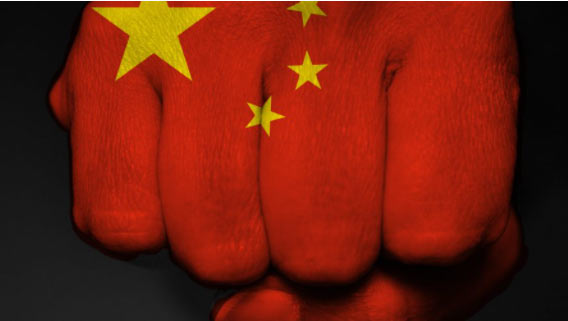
China Blocking Punches With Their Face
One of the difficulties in Chinese analysis is that there is a maze of arguments and counter arguments. The counter to arguments that China’s economy is faltering, is explained by such heavy weights as Michael Pillsbury, who suggest that China leaks numbers about its financial weakness as camouflage for its rise. This results in days where analysts can read an article about China’s rise and modernization, on the same day they read an article about China’s struggling economy.
This piece pushes back against that idea by comparing to an argument that says a losing boxer blocks punches with their face. I say this by looking at long term demographic trends, reason about the limits of a command economy, and clear data that suggests they are faltering and point out the myth of straight-line growth.
Pillsbury and other analysts contend that China has a goal that by 2049, the hundredth anniversary of the Communists taking power, China will be a “prosperous, modern, and strong socialist country with a world-class military.” In pursuit of these goals they have made numerous structural changes to their armed forces to increase operational effectiveness. And they have introduced many new weapons systems including the indigenous aircraft carrier Shandong, (still not combat ready) the Type-055 guided missile destroyer, the J-20 stealth fighter, (that still has engine problems) the Y-20 long-range transport aircraft, the DF-21D anti-ship ballistic missile and the DF-17 ballistic missile fitted with a hypersonic glide vehicle. They are making strides in artificial intelligence and cyber and space warfare. (Some analysts contend that their focus on new forms of warfare actually surpasses U.S. capabilities.) Reports of Chinese weakness then such as a deteriorating economy are meant to assuage Western concerns and promote their subtle, long term strategy that allows China to assume the dominant position before the West knows it.
But this analysis is what the British could call “too clever by half” in that it explains away negative information by arguing that side is playing 3d chess. It ends up sounding like the criminal who says that if they did commit the crime, they would have been smarter about it instead of making so many mistakes. Or a losing boxer that says they blocked the opponent’s punches with their faces.
For example, most people in their personal lives, and in international relations assume straight projections. They don’t plan for down turns, depressions, and random misfortunes of life. That’s why Americans have little reserve savings and must visit pay day lenders, or the state of Nevada can finance a stadium for 30 years with expected tourism revenue that suddenly vanishes during a pandemic.
Just from personal experience I have reason to doubt the doom sayers on Chinese economic matters. When I was a kid in the 80s everybody was worried about the juggernauts of Japan and Germany over taking the United States. They had rather impressive economies and were growing for quite a while. But both countries faced severe demographic crises. They don’t have enough workers to support their aging population. Japan faced a severe economic recession that resulted in a lost decade. Germany is the relative work horse of Europe but is being dragged down by debt ridden countries like Greece and Spain.
Then in high school I heard about the Chinese. For literally the last twenty-five years I’ve seen pictures of a Red Chinese flag on the cover of Time Magazine with talk about the rise of China. But the one child policy has introduced demographic challenges similar to Germany and Japan, with an aging population and a lack of young workers to support the care of the elderly. China still has a significant number of people living in caves. So their progress is amazing, but doesn’t touch everybody, and may not continue forever.
In the 2008 recession China embarked on an unprecedented loan and spend spree that prevented a downturn like that experienced in America and across the world. But they now have a debt bubble that is larger than that faced by the U.S. in 2008, even though their economy is one third of the size. The last time China recorded a downturn was 1976, so China will eventually have to face a correction that will dwarf the U.S. crisis from 2008. It will perhaps be a crash, or maybe a decade long recession like the much-vaunted Japanese economy.
There are significant warning signs already. One author pointed out that new graduates don’t struggle finding jobs in a booming economy, and yet they are in China. While economic numbers can be messaged and China is known for cooking the books, items like the length of time it takes for government to make payments suggests China is having issues with cash flow. Rich Chinese citizens have been hiding their money since at least 2014 and the trend has accelerated. A well-oiled economy or fake news wouldn’t show graduates having difficulty finding jobs and the government unable to pay its bills with the rich scrambling to protect their assets overseas.
Whatever course the correction takes, it will likely mean that China will not catch the United States within the next 50 years. The reports about their economic difficulties are real. And elites trying to explain them away sounds like reaching arguments that ignore those real conditions.
Source: https://opslens.com/china-blocking-punches-with-their-face/